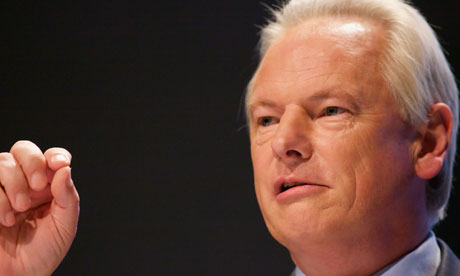
The Big Society now wants your money from your cash point now being proposed by the coalition all those in favour say Yay Or Nay. Lets see it looks like the to the right has it in the form of Green paper, drafted by Cabinet Office minister Francis Maude, is designed to encourautge philanthropy.
I am convince it is a Big con to make money just look around in today's economic climate public sector funding is being halved three times the rate under this coalition than a Labour Gov would have proposed.
The way how I read into it at the moment is people don't mind knowing what needs to be cut but when you look at the wider implications for the nation the Tories will let their partner in crime to happy to take the fall for it. Nice one Cleggy your the man.
Cash machines should automatically give customers an option of donating to charity, the coalition proposes tomorrow in a green paper designed to define the elusive "big society" in Britain.
The proposal is one of a series of ideas put forward by the Cabinet Office to shift what the coalition sees as the stubborn British refusal to be philanthropic with time or money. Prompts to give to charitable causes might also be developed whenever someone fills in a tax return or applies for a driving licence or passport.
Other ideas aired in the innovative green paper include a thank-you letter from ministers for giving large sums, a national day to celebrate donors, and a televised weekly thank-you to national lottery winners who have donated.
The green paper also considers whether the government should try to set as a social norm that everyone should give 1% of their income to charity, or a fixed proportion of their time. Overall, the green paper, drafted by Cabinet Office minister Francis Maude, argues that the internet and apps are now "providing an unparalleled opportunity to access information on how to make a difference".
Other ideas include developing an app so that retailers automatically send very small donations to charity every time a customer uses a particular search engine to look at the retailer's website.
At present 8% of the UK population contribute 47% of total donations, and with income tax now rising to 50% for those earning more than £150,000 a year, the government faces an uphill task in creating a new culture of giving. Charities also complain that their national funding is being cut by the government.
Following objections from the Treasury, the green paper is noncommittal about fresh tax breaks for giving, but says many of the existing incentives are poorly understood by UK corporations. Payroll giving is perceived as too time consuming by many small businesses, while big corporate donors tend to give to a narrow range of causes likely to be uncontroversial with shareholders.
The green paper, drawing on the analytical work of the so-called nudge unit in No 10, takes a strong view that social action is not something the coalition can or should compel people to take.
The paper says that "it has to be built from the bottom up on the back of free decisions by individuals to give to causes around them". Maude said last night: "We are arguing for new social attitudes that celebrate giving.
"Talking about what we are doing for good causes is often seen as vulgar, but sharing experiences can often inspire others."
The coalition claims there is evidence, for instance, that people will give time if approached properly. The London 2012 Olympics organisers have attracted 240,000 applications to be stewards.
The green paper also suggests it is vital that giving is more visible: "The more people see that their peers are giving, and how much they give, the more likely they are to give, or give more, themselves."
The green paper quotes David Halpern, one of the advisers to the nudge unit, who argues: "Our behaviour is generally far more influenced by what we see other people doing than what we think we should be doing."
He also draws on the pioneering work of the sociologist Richard Titmuss to argue that there is a gift relationship, claiming: "Evolution has endowed us with a social brain that predisposes us to reciprocate acts of kindness, not just blindly to follow anyone and everyone, regardless of how they treat anyone."
As a result there has been a growth in peer-to-peer lending and financing platforms such as Zopa that allow people to give money to individuals or projects that post requests for funding online.
The paper argues that social media such as Facebook "offer enormous potential to normalise giving with developments such as Twibbons that allow people to share their support for a cause in the online environment."
"Transparency should make it possible to tell whether charities are good value through sites such as New Philanthropy Capital's ratings and comparison websites."
